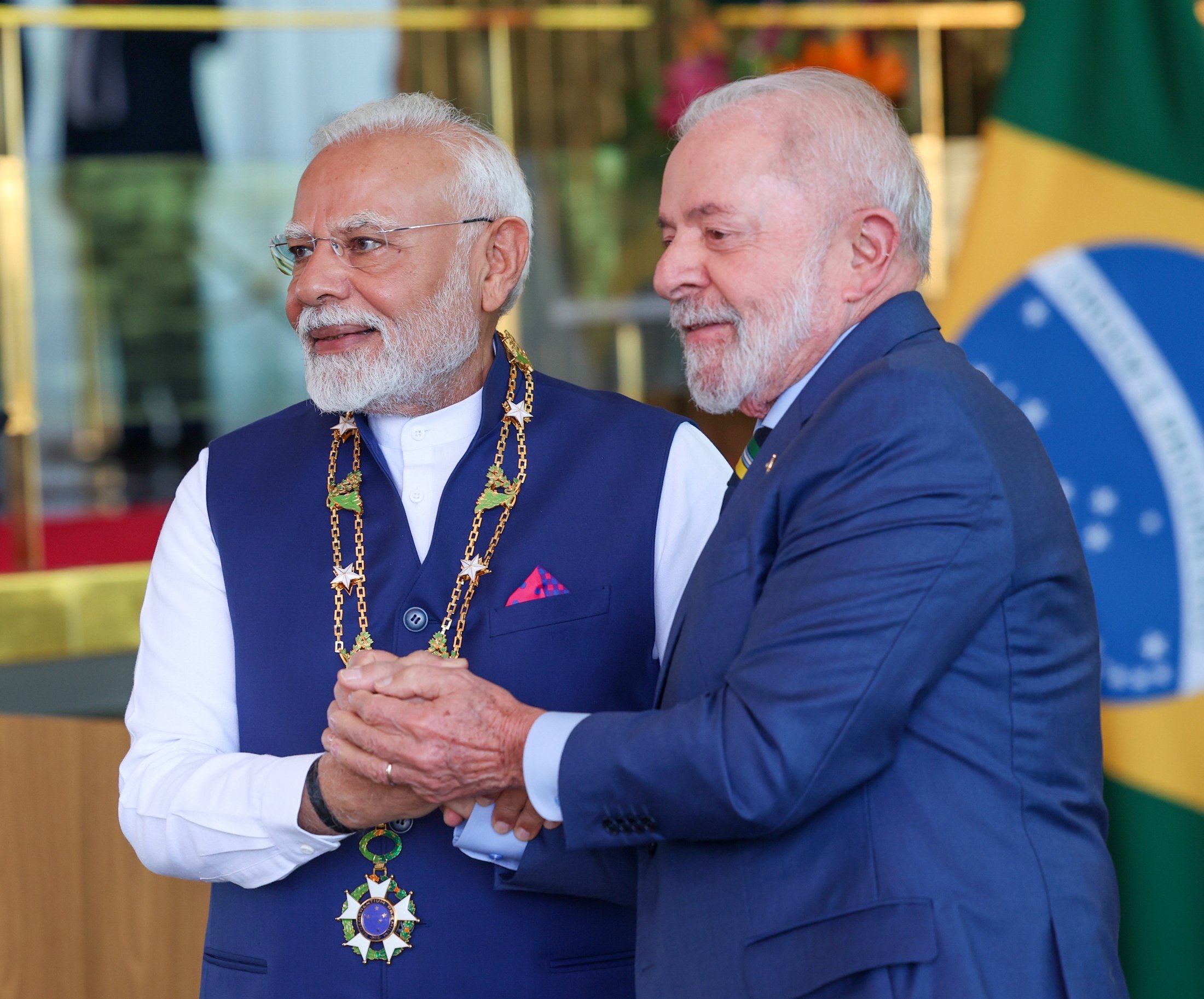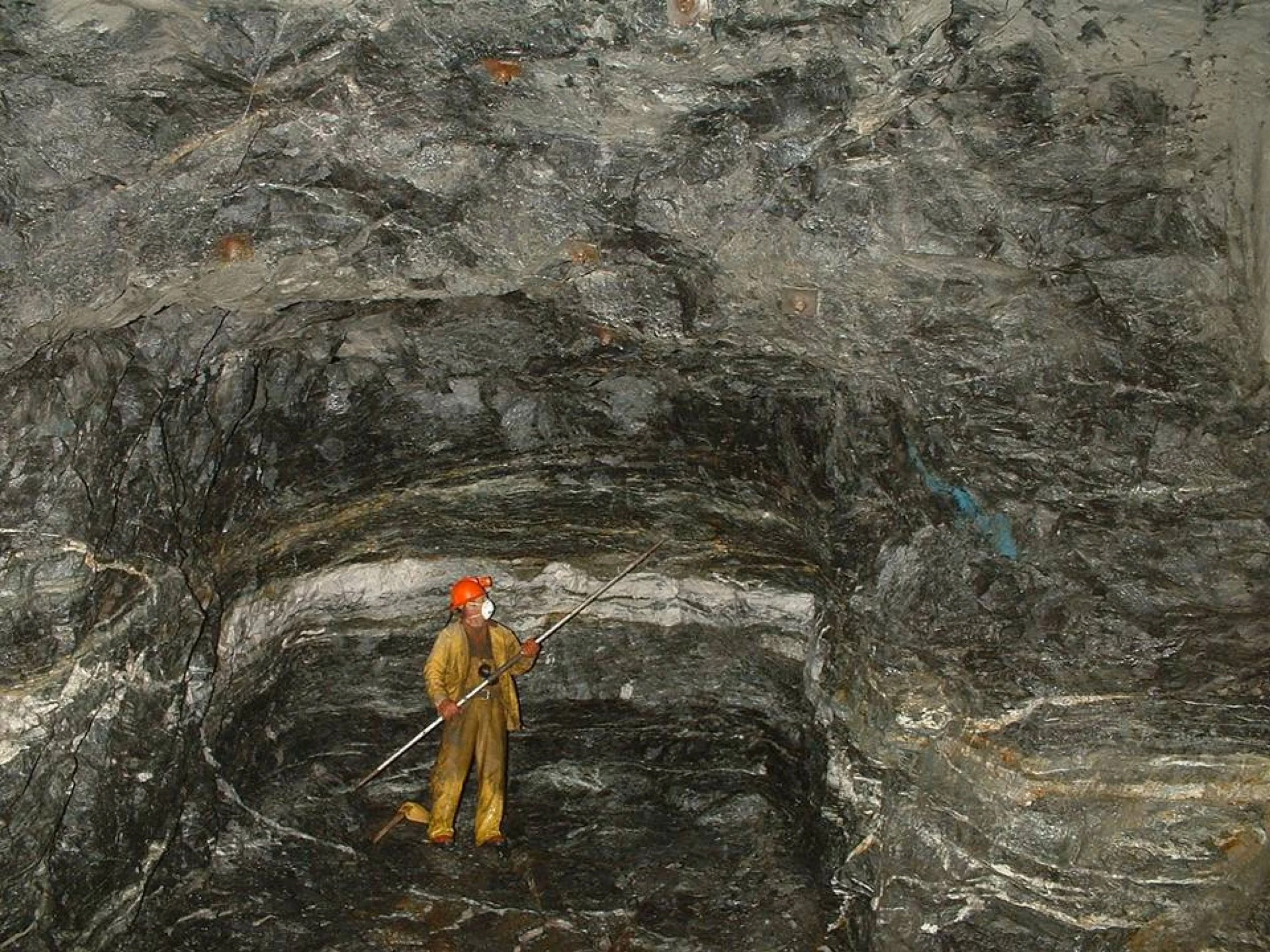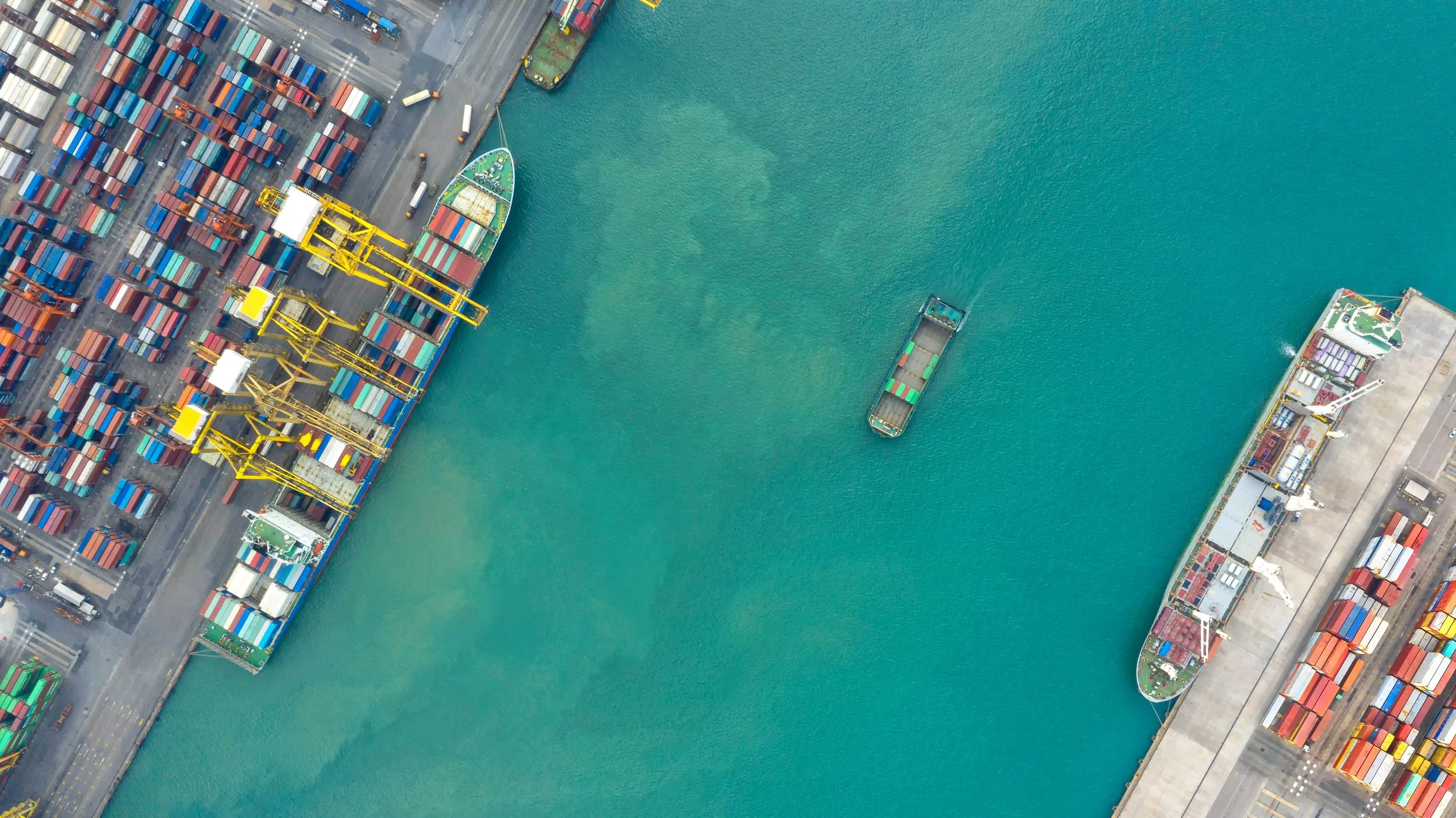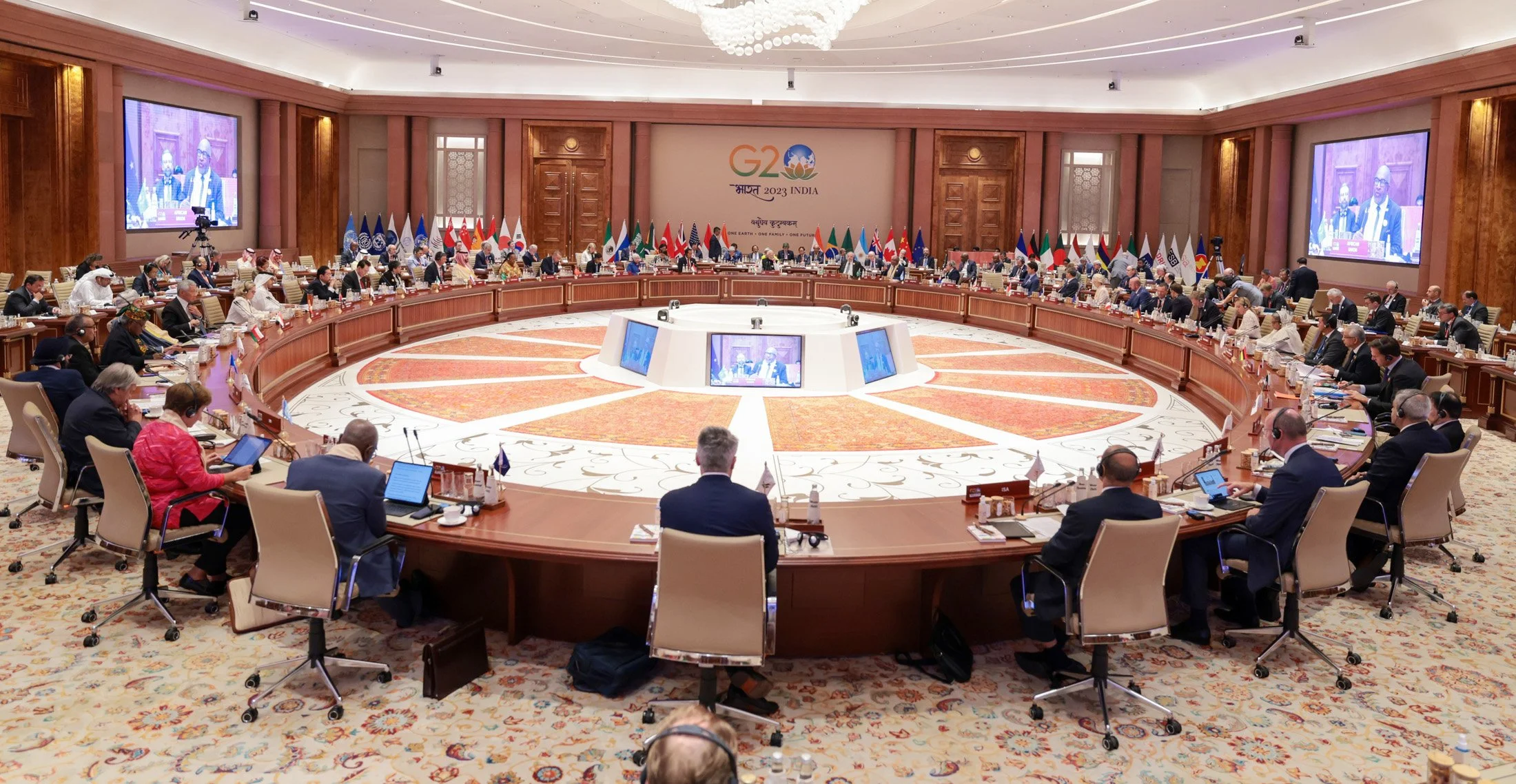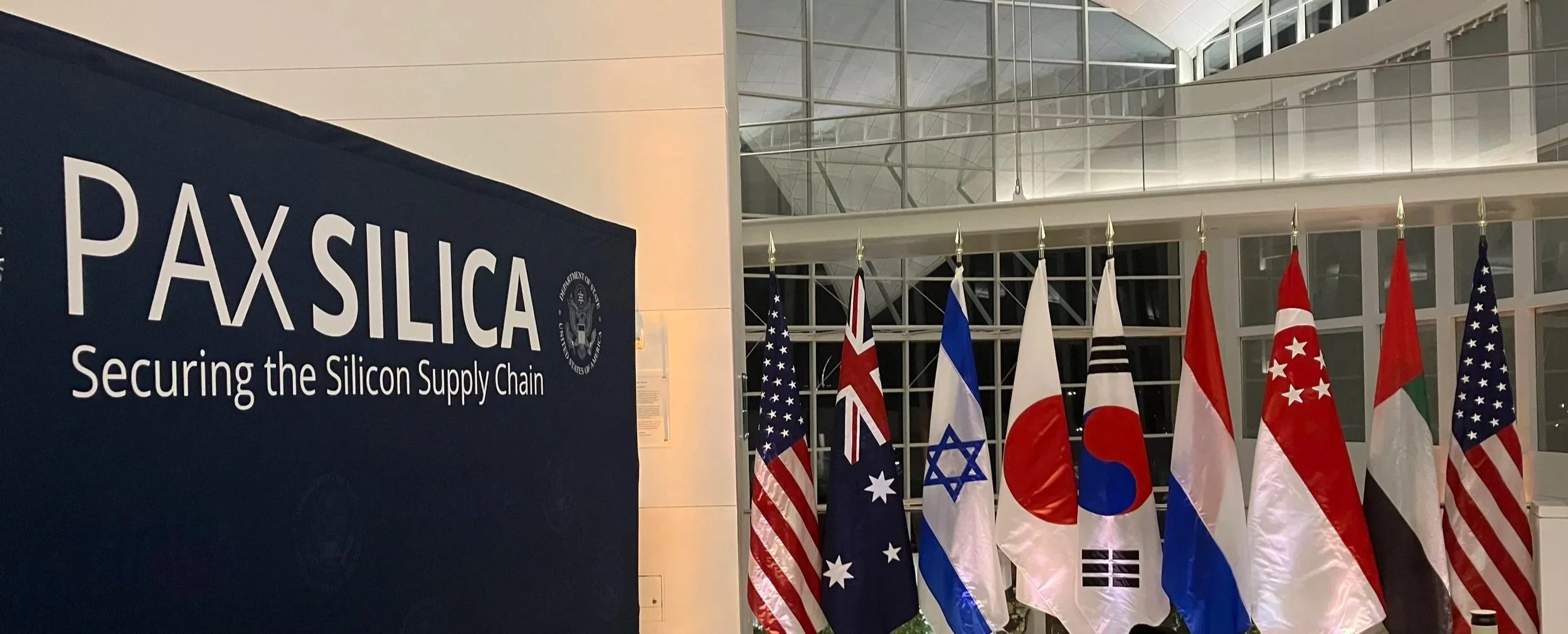Comments
Short commentary by ORF America experts on current issues. These comments represent the views of the author(s). ORF America does not hold institutional positions on any issues. Comments from previous years can be found here.
By Anit Mukherjee
Lula’s state visit to India will underscore the important role of Brazil and India as leaders of the Global South helping countries navigate geopolitical uncertainty, rebalanced global trade and supply chains, rapid diffusion of transformational technologies, and accelerating impact of a changing climate. With the United States hosting the G20 this year, a strong relationship between the two countries will be critical to consolidate the achievements and keep the priorities of the Global South on the agenda.
By Sarah Salah
There is no question that Greenland holds substantial mineral wealth. Most mining exploration sites in Greenland are located along the coast, making port infrastructure essential for transporting heavy equipment and extracted materials. Yet declining sea levels threaten the long-term viability of deep-water ports built today, potentially rendering them too shallow within decades.
By Udaibir Das
When finance is discussed in the context of India’s trade agreements, the debate polarizes: either India is genuinely opening, or it remains stuck in defensive regulation. But neither captures what is happening: India is selectively binding regulatory discretion, exporting specific platforms, and keeping control over balance-sheet risks.
By Sunaina Kumar, Soumya Bhowmick, Anasua Basu Ray Chaudhury, Arpan Tulsyan, and Manish Vaidya
By 2033, the Global South is projected to account for 1.2 billion youths aged 15–24, yet only 480 million are projected to be enrolled in school, and about 420 million to secure employment, leaving nearly 300 million young people facing severely constrained opportunities. Equipping them with quality education and relevant skills is crucial.
By Nilanjan Ghosh, Ramanath Jha, Oommen C. Kurian, Soma Sarkar, and Shoba Suri
A distinctive feature of the year 2026 is the convergence of several transitions: food systems are being reshaped by regenerative practices and digital technologies, health governance is undergoing reform within a post-pandemic framework, and cities are simultaneously sites of vulnerability and centers of innovation.
By Katherine Salinas
As AI rapidly transforms the landscape of research and knowledge production, think tanks face an existential question: what is their role when AI agents can conduct research at speeds no human could match?
By Mannat Jaspal, Parul Bakshi, Cauvery Ganapathy, Lydia Powell, and Piyush Verma
As we enter 2026, climate and energy policies are being shaped not only by decarbonization imperatives. Geopolitical upheaval, technological competition, economic transformation, supply chain resilience, and national security concerns are exerting influence over the future of energy and climate policies worldwide.
By Anirban Sarma with Sauradeep Bag, Anulekha Nandi, Prateek Tripathi, and Siddharth Yadav
The year 2025 saw several disruptive and emerging technologies advance from rhetoric, and experimentation, into ongoing expansion, to an accelerated phase of growth. At the same time, there emerged a rising sense of urgency about the need for digital sovereignty. Taken together, AI, quantum computing, digital currencies, and nanotechnology represent a frontier where technology, power, and the political economy increasingly converge.
By Anit Mukherjee with Dhruba Purkayastha, Arya Roy Bardhan, Srijan Shukla, and Jhanvi Tripathi
The “reciprocal tariffs” announced by the United States in early April disrupted the global trade flows and unsettled the multilateral system built over several decades. As a result, global players are adjusting to this new reality and altering their behavior beyond tariff measures to safeguard their own interests.
By Piyush Verma
India’s latest Union Budget marks a subtle but important shift in how the country is framing its energy priorities. Rather than centering the narrative solely on clean energy targets or renewable capacity additions and relevant policy support, the Budget signals a broader and more mature emphasis on energy security.
By Dhruva Jaishankar with Pratnashree Basu, Kartik Bommakanti, Lindsey Ford, and Kabir Taneja
The re-election of Donald Trump in the United States (US) has introduced a wave of turbulence to the international system, reversing certain pre-existing trends while accelerating others. Meanwhile, the war in Ukraine continues to contribute to Europe’s rearmament. Israel’s strikes in Iran, Syria, Qatar, and Yemen reflect broader upheaval spreading across the Middle East and beyond. China’s competition with the US persists, extending across multiple domains and regions. Amid this backdrop, at least five major geopolitical megatrends are likely to unfold.
By Marta Bengoa
The India-EU free trade agreement will connect over two billion people across a market representing nearly a quarter of global GDP. But the real story isn't about size. It's about timing. After seventeen years of false starts and negotiations, both parties finally grasped what's at stake: in a world fragmenting between Washington's capricious tariffs and Beijing's economic coercion, this deal is economic insurance.
By Holly Stevens and Siddharth Sharma
As demand for electric vehicles, battery storage, clean energy systems, and advanced technologies continues to accelerate, Australia’s resource base and mining history, Canada’s resource base as well as its mining and industrial capabilities, and India’s market scale and commitment to value-added manufacturing could support diversification across multiple stages of the value chain.
By Marta Bengoa
Speaking at Davos, Trump first ruled out using military force to acquire Greenland (after weeks of refusing to do so), then hours later announced what he called a "framework of a future deal" with NATO on Arctic security. Whether the framework leads to substantive Arctic security cooperation or remains another example of Trump declaring victory without achieving objectives, the damage to transatlantic economic relations has been done.
By Ammar Nainar
For the first time in a defense framework agreement, India and the United States specified “operational coordination” as an objective for enhancing collaboration in Professional Military Education (PME) and training. While earlier exchanges largely involved India borrowing best practices from the United States, recent cooperation between the two countries has emphasized greater joint activities and operations.
By Krishnaveni Palanivelu
Cybersecurity must be treated as a shared economic security challenge. By aligning standards, strengthening cooperation, and embedding cyber resilience into trade, infrastructure, and foreign policy, democracies like the United States and India can better protect their digital foundations and sustain long-term economic stability.
By Ashwini Thakre and Piyush Verma
No single country can efficiently develop the entire critical minerals value chain on its own, particularly for rare earths and battery materials. Cooperation among the United States, Australia, Japan, and other Indo-Pacific economies reflects a growing recognition that resilience lies not in isolation, but in diversified and trusted networks.
By Anit Mukherjee
Just as the Pittsburgh G20 Summit in 2009 shaped the global economy after the global financial crisis, next year’s Summit in Miami could reset the G20 to issues that matter: financial stability, economic security, and technological innovation.
By Caroline Arkalji
For utilities and developers, a robust U.S. battery-storage industry would reduce dependence on overseas suppliers, cut logistical and tariff-related costs, and accelerate project deployment. If the United States seizes this moment, it can position itself as a global leader in grid-scale battery manufacturing and deliver a more reliable, competitive, and secure energy system for the decades ahead.
By Jeffrey D. Bean
The success of Pax Silica as a tangible platform for the United States and U.S. allies and partners to secure supply chains and retain or regain advantages in technology will be a massive diplomatic and commercial undertaking. Sustained political will seems uncertain.
By Marta Bengoa
Rather than reviving American manufacturing and boosting employment, the data from Trump’s “Liberation Day” tariffs tell a story of job losses in manufacturing, stagnant productivity in that sector, higher inflation across the economy, and economic uncertainty on a scale not seen in decades.
By Ashwini Thakre and Piyush Verma
China’s diplomatic control over sector may become the very trigger that unwinds its dominance. By weaponizing concentration, Beijing accelerated diversification efforts that many democracies had treated as optional. The shock exposed the liabilities of a system built on single-country dependence and encouraged a coordinated wave of investment across the United States, Europe, Japan, South Korea, and Australia.
By Benjamin Tkach and Vasabjit Banerjee
Submarine production difficulties affect the global marketplace and place a premium on domestic production. India’s pursuit of untested technologies elevates its risk, while Taiwan’s domestically produced system relies on foreign components. Both, therefore, have a lot to benefit from engineering and design cooperation in submarine production.
By James Diddams
When Indians speak of dharma and Americans speak of responsibility to protect, they are not speaking from the same tradition, yet they are addressing the same basic problems: How should a political community understand itself as accountable for the use of power?
By Dhruva Jaishankar
Shaped by its own national objectives, advantages, and limitations, India’s AI strategy stands out in several ways, with implications for the country’s AI infrastructure and its relationship with the United States.
By Dhruva Jaishankar
The prospects of a major war involving China and the United States, and a limited war between Pakistan and India, are perhaps higher in the next three years than they have been over the preceding quarter century. Moreover, these two scenarios are connected by an increasingly intertwined China-Pakistan military relationship, which now extends beyond arms transfers to shared networks and emulated doctrines.
By Anit Mukherjee
The fact is that there have been few concrete proposals to address the twin challenges of debt sustainability and the rising demands for additional resources for sustainable development. In a world coming to terms with the radical changes in the development finance landscape over the past months, the leadership of the developing world to advance sustainable development is more critical than ever.
By Piyush Verma
Strengthening the EU-India energy partnership would unlock significant economic opportunities for both regions, fostering innovation, job creation, and strengthening security. How India and the EU align their energy strategies through their trade agreement will have far-reaching consequences for the world’s future.
By Dhruva Jaishankar and Ammar Nainar
As China and the United States jostle for position, India has a modest but meaningful role to play as a security provider in the Western Pacific. Beyond the Indian Ocean, its ability to improve interoperability with willing and capable partners and assist in capacity-building efforts have only increased, notwithstanding the tenor of relations with the United States.
By Medha Prasanna
Joint innovation in water-efficient cooling, collaborative investment in low-carbon hyperscale campuses, and harmonized approaches to land and community engagement could make the U.S.–India partnership a global benchmark in data infrastructure.


